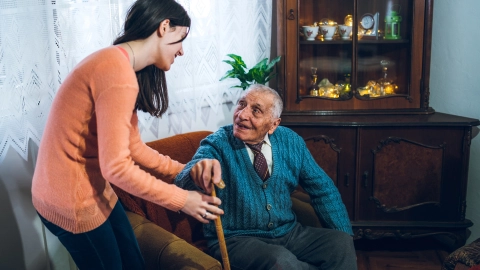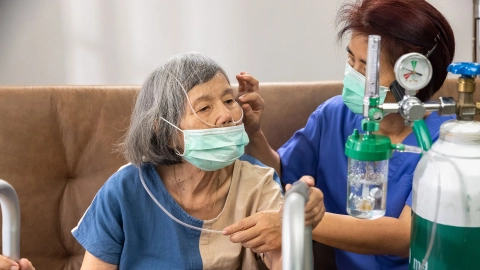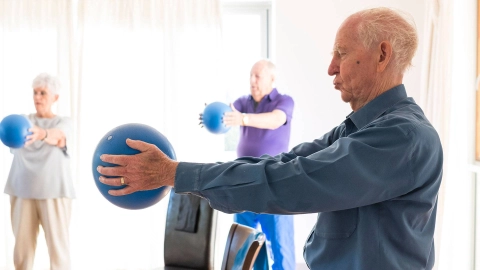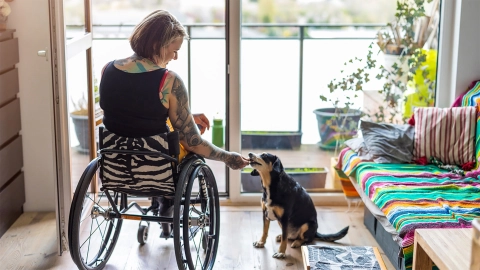Looking after and supporting a person in need of care is a challenging task. The advice and further training opportunities offered by long-term care insurance help support carers in their role.
Find out more
Nursing care allowance is a long-term care insurance benefit. The monthly payment helps care recipients to organize care at home independently.
Find out more
If someone is in need of care, they are entitled to claim long-term care insurance benefits. Find out here which steps are important and where to get the advice you need.
Find out more
Care recipients who live at home can claim long-term care insurance benefits. Read more about these benefits here.
Find out more
People in need of care can apply for help with covering care costs if their income or pension isn’t enough. Information is provided here about applications, benefits and income assessment.
Find out more
Critically ill people sometimes require special intensive care. This article provides information about how out-of-hospital intensive care is prescribed and the associated benefits and costs.
Find out more
Short-term care is useful when care at home is temporarily not possible. People in need of care can move into a care facility during this period. Long-term care insurance contributes to the costs.
Find out more
Respite care allowance covers the cost of care for short periods when family carers are temporarily unavailable. The person in need of care can remain in their familiar environment during this time.
Find out more
Residents are sometimes away from a nursing home for a prolonged period. Read this article to discover from when and to what extent nursing home costs can be reduced in the event of an absence.
Find out more
Quality is an important criterion when selecting a care service. But how can you determine this? Read on to find out more about quality criteria and inspection procedures.
Find out more
The additional relief allowance is a versatile, flexible benefit that can be used in various ways for care at home. An annual total of 1,572 euros is available.
Find out more
There are many challenges facing families with children or adolescents in need of care. Social security benefits and support services enable treatment, care and social participation.
Find out more
Care group homes are a way of living a self-determined life for as long as possible in old age. Anyone setting up or converting to a care group home arrangement can claim support.
Find out more
Non-cash care benefits are a form of financial support from long-term care insurance providers for care at home. They can be used to finance assistance from a care or support service.
Find out more
Day and night care facilities support care at home. Read on to find out what costs you will incur and how partial residential care can be financed.
Find out more
Full-time residential care is an option if people who are in need of care cannot be cared for at home. This article discusses points to consider in terms of costs and the choice of a care facility.
Find out more
Care recipients with a care grade are entitled to care aids, such as a care bed or bed pads. They need to apply to their long-term care insurance fund to have the costs covered.
Find out more
A home emergency call system allows people to get help quickly at the touch of a button in the event of an emergency. It is ideal for older and health-impaired people who are at risk of falls.
Find out more
Anyone who needs temporary care support or help at home can access it through their statutory health insurance fund. Find out more here about the benefits available and how to apply for them.
Find out more
There are various points of contact for people experiencing deficiencies in long-term care provision. A legal dispute is best avoided if possible.
Find out more
Supported living (also known as assisted living) enables people who are in need of support to live in private accommodation and to lead a self-determined life as independently as possible.
Find out more
Even people with a need for care or support can reside in a self-determined manner and as independently as possible. Various residential models, services and aids provide the necessary support.
Find out more
People who are critically or terminally ill are entitled to live and die in dignity. Special palliative care services are available for this purpose. Discover health insurance benefits in this area.
Find out more















































